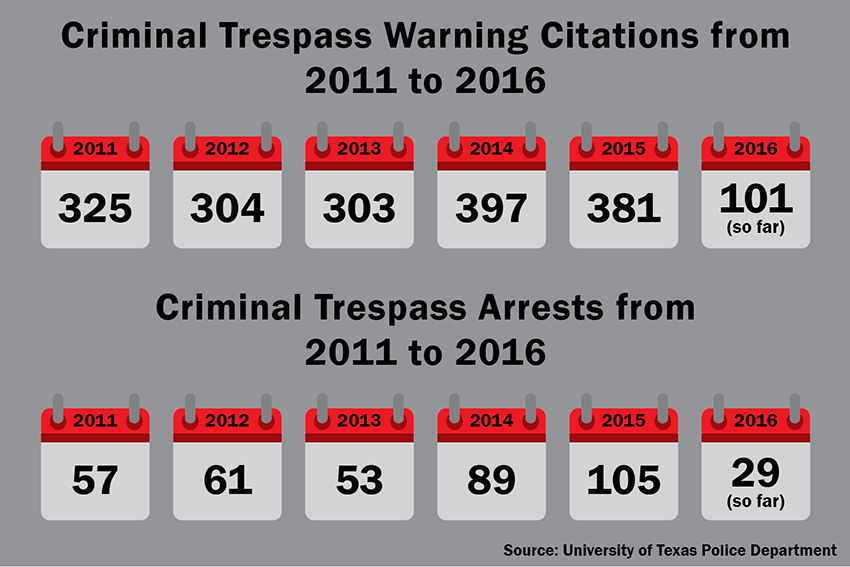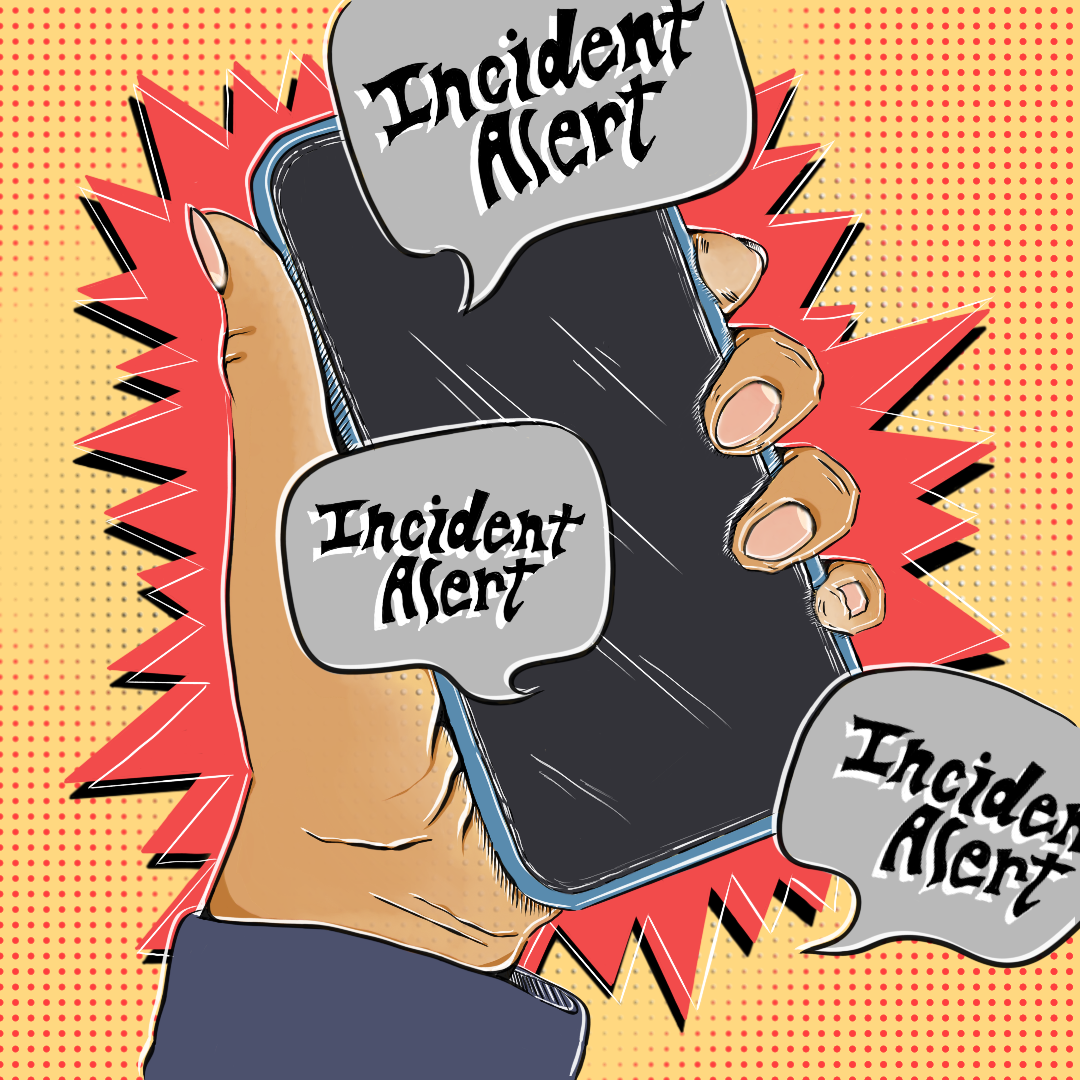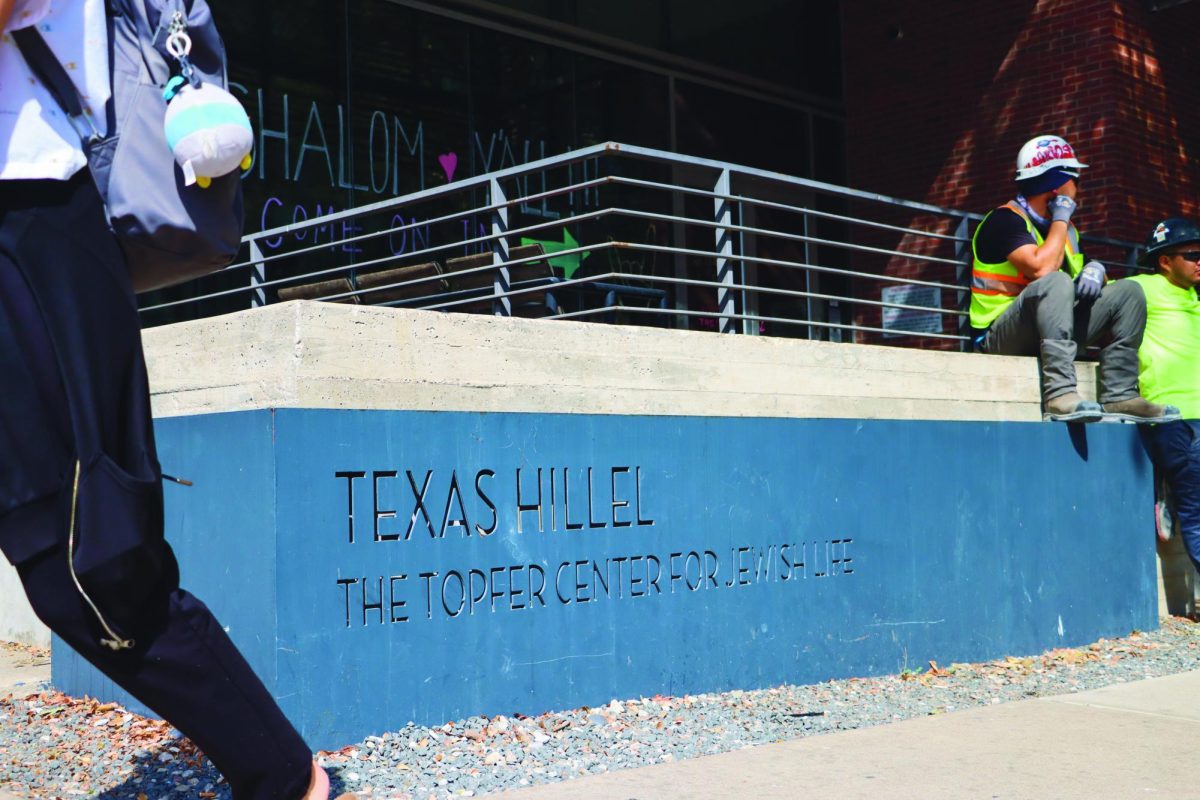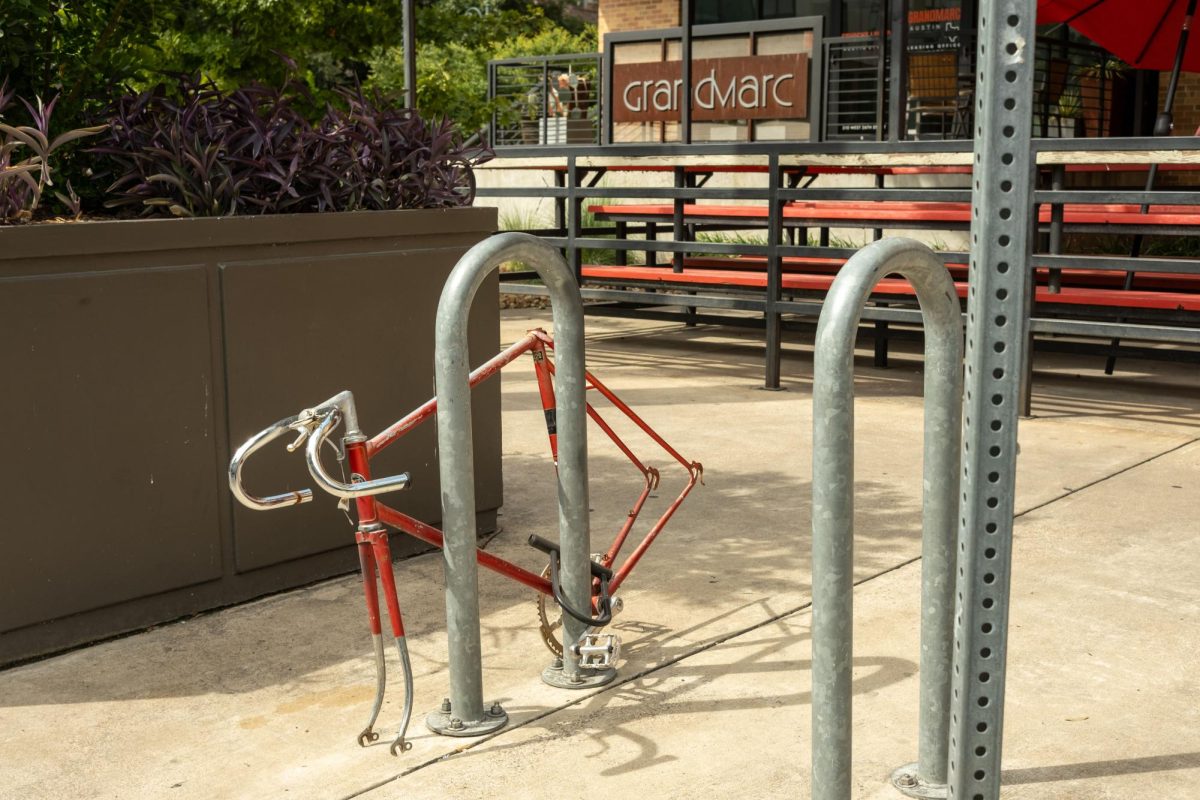Criminal trespassing rates on University grounds have been on the rise throughout the past several years.
According to statistics from the University of Texas Police Department, warning citations for criminal trespassing increased by 25 percent between 2012 and 2015, while the number of campus arrests related to trespassing increased by approximately 72 percent. In 2016, there have been 101 citations issued and 29 arrests made in connection with criminal trespassing on campus, as of April 21.
UTPD Captain Don Verett said he classifies criminal trespassing as an ongoing issue, but not necessarily a significant problem. Verett said the warnings and arrests for this offense generally occur on the periphery of campus or in buildings near the edge of campus, such as the Union Building and Walter Webb Hall.
“The University is not a public place,” Verett said. “The University is accessible to the public and we invite the public to come to campus, but people have to know that the University itself is reserved for students, faculty and staff.”
According to the Texas Penal Code, a person commits criminal trespassing when they proceed to enter an area from which they are clearly prohibited or have received notice to depart, but failed to do so.
“A person commits an offense if the person enters or remains on or in property of another, including residential land, agricultural land, a recreational vehicle park, a building, or an aircraft or other vehicle, without effective consent,” according to the penal code.
Verett said while some instances of criminal trespassing involve the homeless population or a variety of people not affiliated with UT have received citations or been arrested for the crime. However, he said the high frequency of instances in 2014 and 2015 is most likely because of a large number of homeless people gathering in the Guadalupe Street area, which he said has decreased since then.
“Just because one is homeless does not mean one is causing problems,” Verett said.
The University tends to see a higher frequency of trespassers during extreme weather periods, such as the hot summers, Verett said. He also said those not affiliated with UT will sometimes use the computers in on-campus libraries after hours, when they are reserved exclusively for University members.
Verett said UTPD responds to calls for potential trespassers from staff members, rather than asking people to identify themselves. Instead of profiling anyone’s outward appearance, Verett said students should remain aware of suspicious or disruptive behavior and call the police if they believe a person is trespassing. He said UTPD is an intelligence-based policing organization that uses data and resources in efficient ways. More officers are placed in the areas statistically shown to have a higher number of criminal trespass activity.
In the Union, a common place of criminal trespassing occurrences, Verett said building managers will ask for identification or call the police if they notice somebody causing a problem or breaking an institutional rule.
Dana Summers, advertising and radio-television-film senior, said she previously worked in the Union and frequently noticed a large non-UT population in the building. However, she said it did not seem to cause problems or disturb students.
“I generally feel pretty safe within the building on campus,” Summers said. “Most of the time, [the non-UT population] just kept to themselves.”


















